Bloomberg Businessweek Praises Rutgers, and More – New York News

Let’s explore some of the most interesting stories that have emerged from New York business schools this week.
Bloomberg Ranks Rutgers MBA No. 1 in the Northeast in Job Placement – Rutgers Business Blog
In its “Best Graduate Business Schools of 2017 ” survey, Bloomberg Businessweek ranked Rutgers Business School (Newark, New Brunswick) as the top business school in terms of job placement within the Northeastern United States,. coming in second overall in the United States. Andy Heller, RBS MBA ’11 and current senior associate director of payor and health system marketing at Boehringer Ingelheim sang Rutgers’ praises in terms of preparing him to succeed in the corporate world.
“That kind of experience has helped me each and every day since graduation. Having diverse perspectives on our team ensured that our solutions would be differentiated, yet relevant, and impactful,” Heller notes.
In addition, RBS topped its fellow Big Ten competitors when it came to return on investment, narrowly edging out the University of Iowa College of Business, and Northwestern University’s Kellogg School of Management. The latter of which offered a higher multi-year ROI for potential MBA students, but cost much more in terms of tuition.
Read more about Rutgers’ rankings and accolades here.
Are You a Good Fit for the Executive MBA/MS in Healthcare Leadership Program? – Johnson Business Feed
The Executive MBA/MS in Healthcare Leadership program at Cornell’s SC Johnson School of Management “integrates the general management curriculum of Johnson’s Executive MBA programs with the deep healthcare expertise of Weill Cornell Medicine’s Healthcare Policy and Research Department.” The joint program was developed to “reflect the future of healthcare” and help “sharpen and deepen the skill sets of healthcare professionals through business and healthcare leadership education,” according to the school.
“Today’s healthcare leaders need to be open to knowledge from different vantage points so they can advance progressive healthcare agendas, locally and nationally. Many healthcare leadership programs are exclusively for physicians. However, as we developed this new program, the physicians we spoke to expressed interest in an executive healthcare program that welcomed non-clinicians from different sectors of healthcare—not just practitioners.”
Take a look at the makeup of the Executive program below:
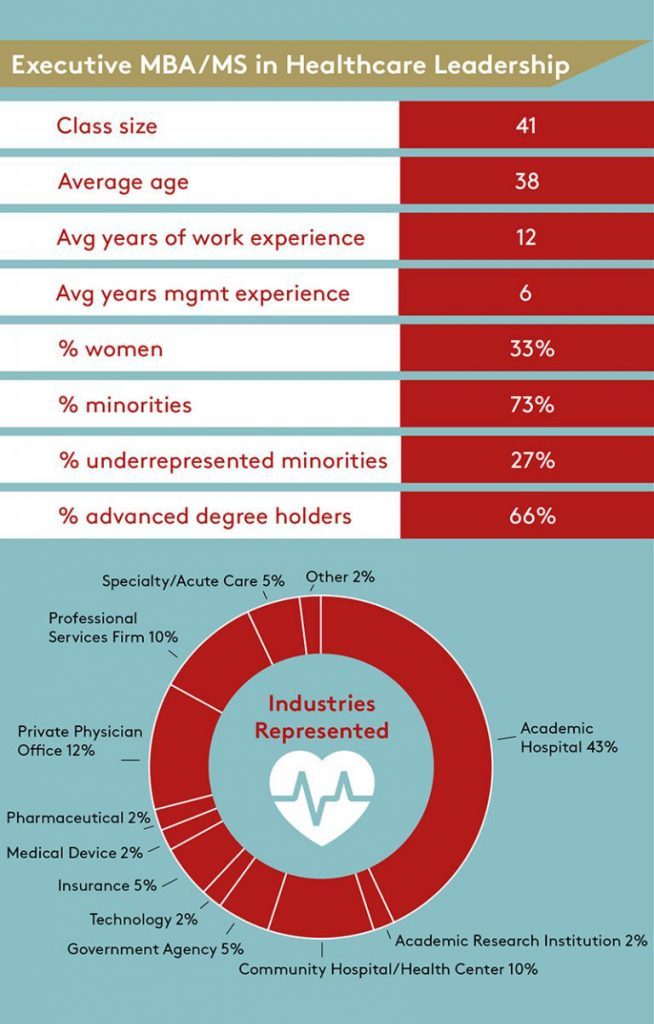
You can read here to learn more about what the program looks for in terms of applicants.
Rewiring Hidden Biases for Better Outcomes – Gabelli Connect
Fordham University’s Gabelli School of Business recently hosted a talk by Harvard professor of social ethics Mahzarin Banaji who unpacked the hidden biases of well-intentioned people—that is, “the beliefs that live in the subconscious and are formulated due to various exposures throughout one’s life.”
Banaji explains:
“A bias is nothing more than a tilting away from neutrality. There’s bias in the mind of the receiver and the applicant. We have to work with the very groups that are holding themselves back and educate those who are holding them back. We are capable of change by how many times we stretch those muscles.”
Learn more about Banaji’s take on unconscious biases here.
The Differences Between a Full-Time MBA in New York City and Toronto

New York and Toronto are the largest cities in the United States and Canada, respectively. Both are major financial and cultural centers, and home to millions of hard-working students, employees, and businesses.
Both metros are also home to a number of quality business schools, each with their own prestigious full-time MBA programs. How do New York and Toronto compare as cities and as destinations for your full-time MBA studies? Let’s take a deeper dive and see.
Location
The most bustling and populous metro in the United States, New York City is is the capital of the business world. More Fortune 500 companies are headquartered here than in any other city. The Big Apple is not only home to Wall Street and the world’s largest financial institutions, but also media, marketing and advertising companies. New York is an enormous city and, unfortunately, expensive to live in, so it may not be for everyone.
When looking at metros with bustling financial sectors and companies, New York is often is the first to come to mind. But how about it neighbor to the north? Toronto is also considered one of the world’s fast-growing financial hubs. An article on the Huffington Post explains how Toronto has risen into the top 10 of the world’s most important financial centers. According to the Global Financial Centres Index from Z/Yen Group and Qatar Financial Centre, Toronto has surpassed Chicago and Boston to become the second-most important financial center in North America, and eighth in the world.
According to one unidentified New York banker quoted in the Global Financial Centres Index survey, “Toronto seems to get stronger and stronger. A number of our rivals have opened up subsidiaries there.”
New York City Full-Time MBA Programs
- Columbia Business School
- Stern School of Business – New York University
- Gabelli School of Business – Fordham University
- Zicklin School of Business – Baruch College
What stands out about these programs?
A Columbia MBA opens up countless career options and is sure to pay off in the long run. The median starting salaries for Columbia MBAs is $125,000, with 34 percent of full-time MBA of graduates being employed in the financial services industry. Students may assemble their own elective tracks, but the school also provides recommend course tracks for students interested in careers in entrepreneurship, healthcare, marketing, media, real estate, value investing, and social enterprise.
Meanwhile, Stern’s MBA curriculum gives students tons of flexibility, and allows degree seekers to choose one or two MBA specializations, NYU allows up to three specializations from 20 plus options. Stern makes sure that all students enrolled in the full-time program are ready for business school: Stern hosts a mandatory two-week orientation program in August called “Launch” as well as a special “Summer Start” program that allows students the school believes may need additional preparation to earn up to six credits before starting courses with their classmates in September.
Both Gabelli and Zicklin’s full-time programs feature cohort-based structures. Gabelli’s program features a New York immersion experience where, over the course of five days, students are exposed to a number of company visits with corporations like Deutsche Bank, Money.net, and Hewlett Packard. As an alternative to completing a major, Zicklin students may pursue a joint JD/MBA in conjunction with Brooklyn Law School or New York Law School.
Toronto’s Full-Time MBA Programs
- DeGroote School of Business – McMaster University
- Ivey Business School – Western University Canada
- Schulich School of Business – York University
- Ted Rogers School of Management – Ryerson University
What stands out about these programs?
DeGroote’s full-time MBA is a 16-month program ideal for candidates who are early in their career and want to gain advanced business knowledge in order to have more job opportunities. McMaster is one of only four Canadian universities ranked among the top 100 in the world, including by premiere publications like The Financial Times.
Ivey’s full-time program stands out because it can be completed in one year. During the year, students will learn business essentials from Canada’s only case-based MBA program. Students are able to experience real-world business scenarios through more than 300 cases a year, providing them of hands-on experience for how to best handle a variety of business scenarios.
The Sculich School of Business full-time MBA program is non-traditional due to its amorphous teaching format: The organization, pedagogy, and style of classes is determined solely by the most effective way to teach a particular course. This means that while some course instructors make extensive use of case studies, others do not. Other approaches to delivering courses include in-class presentations, role-playing exercises and visiting speakers and business leaders.
Schulich’s program, however, is on the more expensive side when it comes to Toronto metro business schools. The current full cost of the program in 2018-19 is $77,900 CAD for Canada residents, and $99,400 for international residents. While the tuition costs are actually higher than the likes of NYU Stern or the Columbia Business School full-time programs, because of the cost of living in New York City, the price is actually negligible—especially for Canadian residents.
Schulich/NYU/Columbia Full-Time MBA Costs
| York/Schulich | NYU/Stern | Columbia Business School |
|---|---|---|
| $57,000 (Canada Residents) | $69,086 USD | $71,544 USD |
| $77,900 (Full Cost, Canada Resident) | $110,562 (Full Cost, U.S. Resident) | $107,749 (Full Cost, U.S. Resident) |
Ryerson’s full-time MBA stands out thanks to its Management of Technology and Innovation (MBA-MTI) program, which provides graduates with skills in problem-solving, critical thinking, communication and collaboration. Despite it’s technical sounding name, the MBA-MTO is not a technical program. Instead students enrolled in this track graduate with the skills needed to manage within companies that are focused on tech and innovation.
Breaking Down the Numbers
Even for those who do not pay extra for room and board, expenses for U.S. residents studying at many NYC business schools will be higher than their neighbors to the north. According to Numbeo, the cost of living in Toronto is 24 percent less than the cost of living in New York City, and rent is nearly 40 percent less.
However, the value of the individual school tends to favor New York City programs over its Toronto counterparts. NYU Stern is currently the 12th overall on the U.S. News & World Report 2018 ranking, with CBS coming even higher at 9th overall. The ranking comparison remains consistent with The Economist as well, with CBS coming in 9th (again), Stern coming in 14th. The highest ranked Canadian program in The Economist ranking—Ivey Business School—came in 59th.
NYC/Toronto MBA Rankings
| School | Financial Times Ranking (2018) | The Economist Ranking (2017) |
|---|---|---|
| NYU Stern | 23 | 14 |
| Columbia Business School | 7 | 9 |
| Ivey | 90 | 59 |
| Schulich | NR | 69 |
The higher rankings and costs tend to, unsurprisingly, have a high correlation with financial output. MBA graduates from higher-ranked NYC metro schools tend to do better in terms of salary and bonuses. As previously mentioned, CBS Class of 2017 MBA grads pulled in a median annually salary of $125,000. Class of 2017 Schulich grads, in comparison, made an average median salary of around $90,000 USD.
For more information on the best full-time programs, check out our New York City and Toronto metro pages.
How NYC Business Schools Help the Underprivileged Applicants

Pursuing an MBA is a shrewd move for anyone looking to earn a competitive salary right out of school. Though attending a renowned school can up the price tag of earning an MBA, it may also increase the overall return on investment. According to an article in U.S. News & World Report, “… graduates of top-tier business schools usually earn higher starting salaries than their peers who went to lower-ranked schools.”
It’s not jut the opportunity to have a lucrative job right out of school that makes a high starting salary appealing. An enviable starting salary could mean more earning potential down the line. However, a top-tier school may seem out of reach for low-income applicants. After all, how can you enjoy the return on investment if you can’t afford to invest in the first place?
Luckily, many prestigious business schools offer resources for students from different socioeconomic backgrounds. Below, we’ve outlined the resources available for low-income applicants at five of New York City metro’s best business schools.
How NYC Business Schools Help the Underprivileged
Columbia Business School
Columbia Business School offers need-based awards to many students, which may result in anywhere from $7,500 to $30,000 in tuition support. Nearly half of applicants receive need-based scholarships, which are automatically renewed at the start of the second year. Columbia students can also apply for private and federal loans. To create incentive for students to choose careers in public and nonprofit fields, the school offers a Loan Assistance Program for students who utilize their education to pursue these paths. Students are eligible to apply for this program for up to five years after graduation. Depending on the extent of students’ debt, they may receive anywhere from $2,000 to $10,000 of annual support. Columbia students may also receive merit-based scholarships, such as the Columbia Fellows Program, which may cover full or partial tuition and is granted to applicants with an outstanding track record in leadership and creativity.
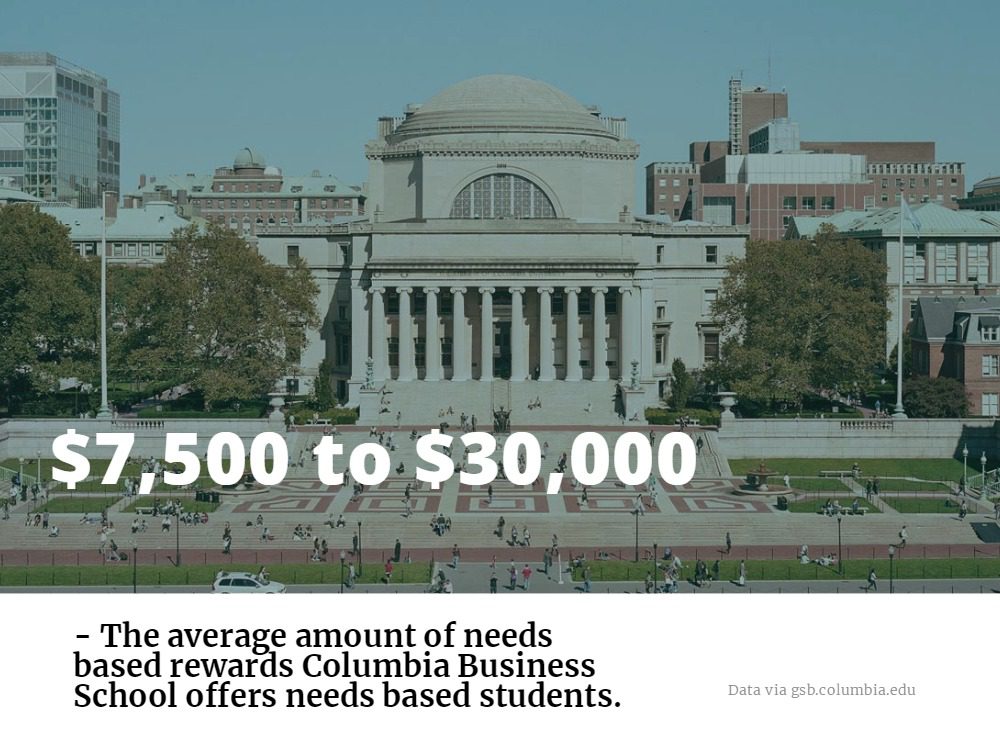
Stern School of Business—New York University
NYU’s Stern School of Business offers a variety of scholarships for high-achieving applicants. According to the school’s website, nearly a quarter of students who enter the full-time MBA program receive a merit-based scholarship. There are also additional merit-based opportunities for students coming from different backgrounds and perspectives. Scholarships like the Advancing Women in Business Scholarship and the Forte Fellowship are particularly geared toward female-identifying students, to support women in business. The ROMBA Fellowship aims to help LGBTQ students succeed in business education. The Consortium Fellowship exists to increase the number of minorities such as Hispanic Americans, Native Americans, and African Americans in business school as well.
Gabelli School of Business—Fordham University
At the Fordham University Gabelli School of Business, graduate students may be eligible for federal financial aid, merit scholarships, or a variety of graduate assistantships. Awards based on academic excellence range from $10,000 to full tuition. Exceptional students may be eligible for awards like the Dean’s Premier Scholarship, which includes a $20,000 living stipend, and may include a stipend toward one of Fordham’s global programs. Students can also apply for a plethora of need/merit-based scholarships, like the Hitachi Diversity and Inclusion Scholarship, which seeks to help underrepresented minorities finance their education.
Rutgers Business School, Newark and New Brunswick
The Financial Times ranked Rutgers Business School among the top 50 MBA programs for return on investment in 2017, citing a 130 percent increase in salary for students within three years of completing their degree. Moreover, the school’s website states that, “More than 80 percent of Rutgers students receive some form of financial aid.” Moreover, at $31,011 per year (not including fees), this program is far more affordable than many other prestigious schools. Students can apply for federal or private loans, grants, and an array of scholarships. In addition to the awards offered by the Rutgers Business School Graduate Scholarship Fund, the Rutgers website lists 30 fellowships, scholarships, and partnerships. The Ralph Bunche Fellowships, for example, provide tuition remission, and a $15,000 living stipend to minority students from disadvantaged socioeconomic backgrounds.
SC Johnson Graduate School of Management—Cornell University
Around 30 percent of entering the SC Johnson Graduate School of Management students receive some level of scholarship support. Scholarships like the National Society of Hispanic MBA’s (NSHMBA) and the TOIGO Fellowship specifically seek to help underrepresented minorities. The MD MBA Dual Degree Program and Lee Family Scholarship supports students on the rigorous path to receive their MD/MBA. Additionally, Cornell’s Park Leadership Fellows Program awards full tuition to up to 25 MBA applicants annually. The award is granted based on personal and professional achievements, academic performance, social contributions, and leadership. Students can also apply for federal and private loans.
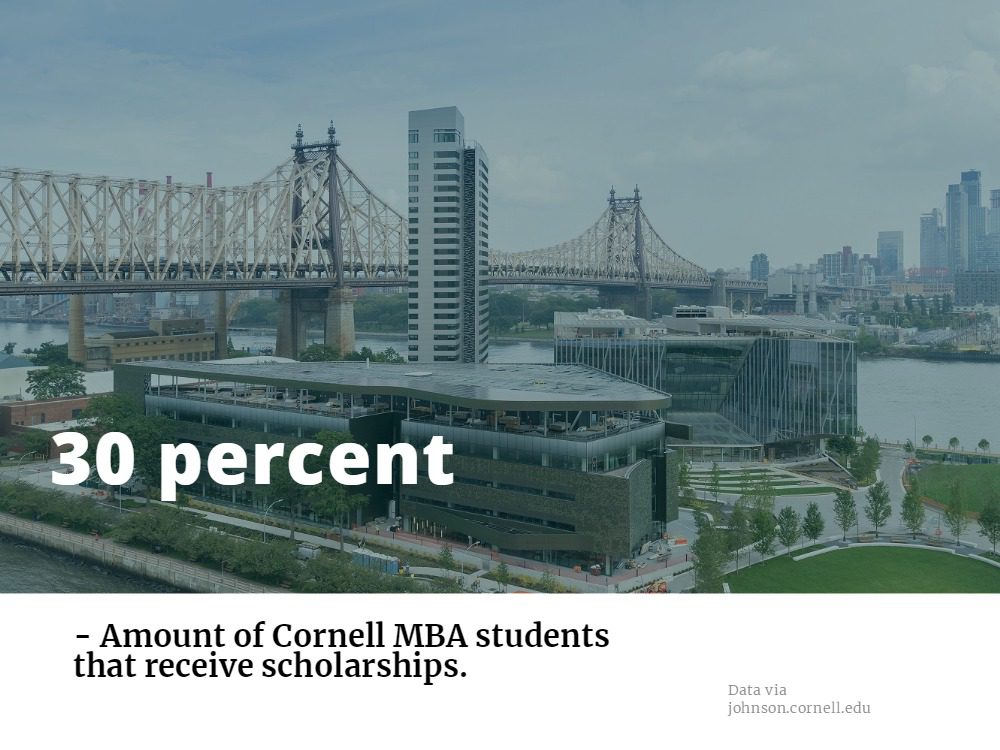
2018 Trends: New York City’s MBA Future

It doesn’t take a stable genius™ to figure out that New York City is the world’s most highly sought-after 22.82 mi² strip of land to pursue an MBA.
As is the case with most prime real estate, the stakes are high and the competition fierce. For many prospective business schoolers, the decision to step into the gauntlet is one made with a healthy sort of trepidation.
Hefty price tags and cutthroat admissions present real barriers for prospective students and deter more than a few. Still, many equate the New York MBA experience to a dream scenario—or a Gordon Gecko-style fantasy, replete with the promise of a staggering salary, an attractive range of employment opportunities, and prime placement in a city of constant progress.
How does the dream stack up to reality? Schools weigh in on 2017 trends for graduates, many of whom report satisfaction with employment offers. Let’s take a look at how MBA graduates are getting the most of their newly minted degrees!
2018 New York City MBA Trends
Columbia Business School
According to the school’s most recent MBA employment report, less than 2 percent of Columbia Business School graduates reported salary as the primary reason for accepting an offer. While the honestly of that polling answer pool is debatable, Columbia School of Business is the king when it comes to starting salaries on our list, with median salary of $125,000. Of the graduating class, 93.2 percent of students accepted employment offers within three months. Approximately 28 of 1,019 total students stepped aside to create their own companies. Per the standard with many of the NY-area schools, the largest portion of graduates selected financial services (34.4 percent) as their field of choice, followed closely by consulting (33.1 percent) and media and technology (15.6 percent). Companies such as McKinsey & Company, Amazon, Goldman, Sachs & Co., and Morgan Stanley welcomed a majority of Columbia’s finest.
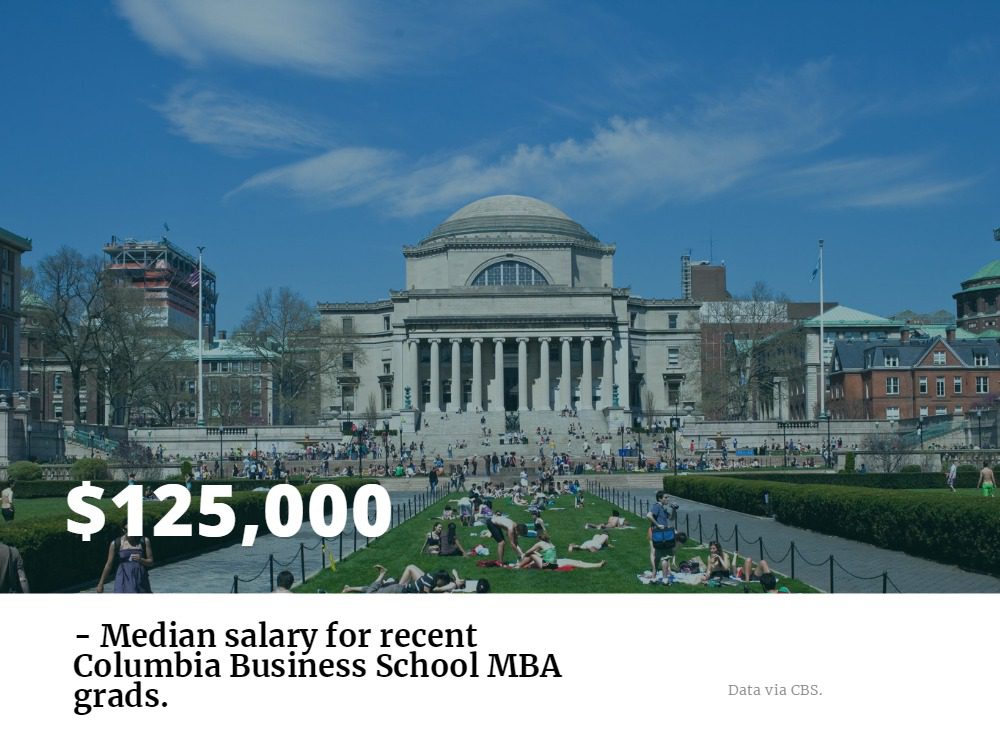
The boastful salary expectations, unsurprisingly, are tempered a bit by the costs of the CBS MBA program. The current estimated budget for Columbia MBAs comes in at $107,749 in the first year, of which includes over $21,000 for room and board. Tuition in isolation, however, costs $71,544 for the first year. Looking at a degree at any New York City school, never mind an Ivy League institution, means cost of living has to be taken in heavy consideration, which can vary greatly from borough to borough.
Fordham University’s Gabelli School of Business
About 88 percent of students in the Fordham Gabelli School of Business graduating class accepted employment offers within six months after graduation. Starting salary rates were below Columbia’s, at an average of $84,593, with an average signing bonus of $15,536 and additional compensation of $14,510. That average salary figure is an approximate 13 percent drop from the previous year’s reported averages.
Out of the many fields MBA students typically chose this year, Fordham students favored less predictable fields: just under 50 percent went into financial services, while 11 percent earning employment in consumer products, technology, and media, respectively. Unlike MBA graduates from many other NYC schools, however, only 5 percent of Gabelli students went into consulting, signifying a deeper trend of tech continuing its encroachment on MBA talent.
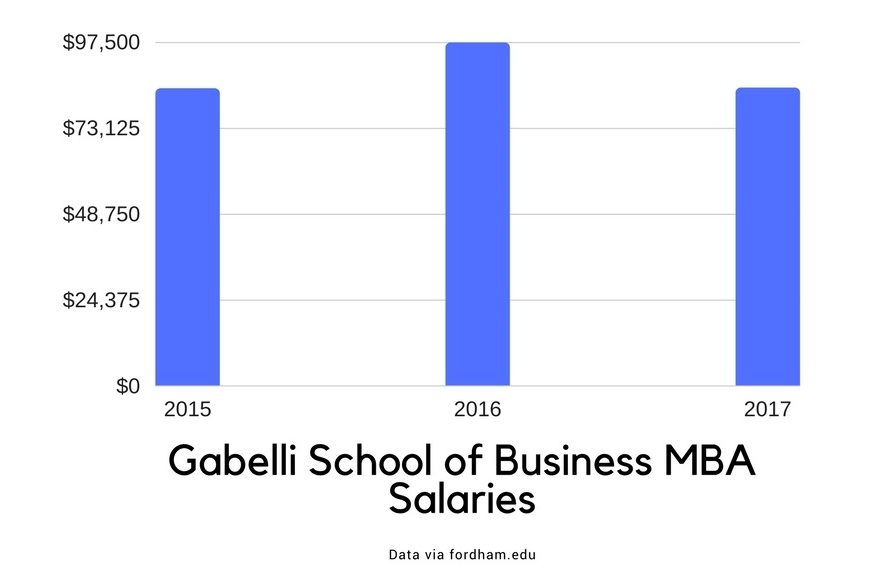
Compared to many other schools on this list, Gabelli’s distinct advantage is cost. The first year of the MBA program currently costs $49,645: more than 30 percent less than the cost of the Columbia full-time MBA tuition.
NYU Stern School of Business
This may shock you, but, NYU Stern MBA students are doing pretty well, with an average starting salary of $121,146 in placement of some of the most prestigious institutions in finance (32.4 percent), consulting (26 percent), technology (16.8 percent), real estate (3.5 percent), and retail (3.2 percent). Around 83 percent of those students landed jobs in the Northeast U.S., while nearly 10 percent of graduates found positions in Asia, Europe, and South America. Nearly half of all job offers were the result of an internship facilitated by NYU.
Like the trend at Gabelli, NYU grads jumping into tech has been steadily climbing over the past few years, rising from just 6 percent of employed grads from the Class of 2014, to 17 percent for the most recent class. The incremental increase coincides with the school’s recently added Tech MBA.
Stevens Institute of Technology School of Business
In a metro brimming with very successful business schools, the Stevens Institute of Technology School of Business separates itself with an incredible employment placement rate of 94.9 percent; the best placement among all business schools in the country, according to U.S. News & World Report.
The Stevens MBA faculty claim to provide “exceptional career services much earlier than other universities.” 90 percent were employed in the industry of their choice. Starting salaries fell between $88,805—$125,000. Companies such as Goldman Sachs, Protiviti, PwC ,and Prudential offered employment opportunities for these students.
Cornell University’s SC Johnson Graduate School of Management
About 93 percent of students from Cornell‘s Ithaca and NYC campuses received employment offers within six months of graduation. The average base salary was $125,578, which was an increase from previous years “driven by salary growth in consulting and finance.” Chosen fields for students were finance (38 percent), consulting (26 percent), and general management (21 percent). Out of the 122 companies that sought 2017 graduate students, the top recruiters were Citi Group, Amazon, Deloitte Consulting LLP, Ernst & Young, and McKinsey & Company.
Even Cornell MBA students in an internship were earning some of the best salaries in the country, pulling in a reported $8,764 per month. Those figures out over a 12-month rate are more than triple the average intern salary, according to Glassdoor data.
Showdown: Find Out if You Should Get an MBA in New York City or Los Angeles

The battle for hip-hop supremacy may have ended in the ’90s, but we can keep the East Coast-West Coast beef alive while looking at full-time MBA programs in New York City and Los Angeles.
Both cities are home to top business schools and are ripe with employment opportunities in booming industries. But which is best for you? Let’s take a deeper dive.
Location
We’ll start with location, location, location.
The most bustling city in the country, NYC is is the capital of the business world. More Fortune 500 companies are headquartered here than in any other city. The city is not only home to Wall Street and the world’s largest financial institutions, but also some of the largest media, marketing, and advertising companies. While New York City can be daunting in its size, it’s also furiously expensive to live in, so it may not be for everyone. Getting to know the city’s vast public transportation system is a must and it can get pretty cold in the winter, so if you’re looking for beaches, keep reading.
Meanwhile, LA is Tinseltown. The city’s economy is driven by entertainment industries like television, film, video games, music recording, and production, but also by international trade, technology, petroleum, fashion, apparel, finance, telecommunications, and tourism. In the 2017 Global Financial Centres Index, Los Angeles was ranked as having the 19th most competitive financial center in the world, and sixth most competitive in United States. The city is also the largest manufacturing center in the western United States, with the ports of Los Angeles and Long Beach comprising the fifth-busiest port in the world and a vital trade route within the Pacific Rim.
New York City Full-Time MBA Programs
Full-time MBA Programs in New York City include:
- Stern School of Business – New York University
- Gabelli School of Business – Fordham University
- Columbia Business School
- Zicklin School of Business – Baruch College
What stands out about these programs?
A Columbia MBA opens up countless career options and is sure to pay off in the long run: The average starting salaries for Columbia MBAs is $104,000, with 37 percent of full-time MBA of graduates being employed in the financial services industry.
Meanwhile, Stern’s MBA curriculum gives students tons of flexibility, and allows degree seekers to choose one or two MBA specializations, NYU allows up to three specializations from 20 plus options.
Both Gabelli and Zicklin’s full-time programs feature cohort-based structures. Gabelli’s program features a New York immersion experience where, over the course of five days, students are exposed to a number of company visits with corporations like Deutsche Bank, Money.net, and Hewlett Packard. As an alternative to completing a major, Zicklin students may pursue a joint JD/MBA in conjunction with Brooklyn Law School or New York Law School.
Los Angeles Full-Time MBA Programs
Full-time MBA Programs in Los Angeles include:
- Anderson School of Management – UCLA
- Argyros School of Business – Chapman University
- Graziadio School of Business and Management – Pepperdine University
- Marshall School of Business – USC
- Peter F. Drucker and Masatoshi Ito Graduate School of Management – Claremont Graduate University
What’s special about these MBA programs?
Anderson features a Business Creation Option for MBAs, which gives students the chance to start their own businesses while still in school. Meanwhile, the Special Project Option challenges groups to tackle problematic issues that impact an entire industry.
Chapman’s full-time MBA curriculum features three main components—core/required courses, a capstone course, and elective courses. Students have several track options available to concentrate their studies, including: Corporate Finance, Marketing, Investment Management, Entrepreneurship, Information Systems in Digital Times, and more.
Graziadio full-time MBA students have the option to spend a trimester abroad in the fall term of their second year at one of Pepperdine’s partner universities in Africa, Asia, Europe, Latin America, or Oceania.
USC MBAs have required study-away coursework called PRIME International Experiential Learning, a 10-day site visit overseas. Students must complete industry—and company-oriented recommendations in capstone projects that incorporate concepts from global strategy and global economics.
At the Drucker School, students may choose two areas of concentration to focus their studies, and select elective within these areas of concentration. Concentrations are offered in: Strategy, Finance, Marketing, Leadership, Global Management, and Information Technology Management.
Jobs and Salary
When it comes to job placement, both New York and Los Angeles have their perks.
New York is home to business school with the highest job placement rate: Around 97 percent of Columbia Business School graduates receive offers within three months of graduation. The school’s class of 2016 boasted an average starting salary of roughly $125,000 plus a $25,000 signing bonus. The top three industries that employ Columbia graduates are financial Services (37 percent), consulting (35 percent) and technology/media (10 percent).
Check out a complete breakdown of NYC salaries and employment opportunities, give our guide to getting paid in New York a read.
While Silicon Valley has a reputation for being the prime place for MBA jobs in California, LA has been catching up recently—and fast. Los Angeles has embraced the tech boom in a big way, with many Valley bigwigs and new startups alike moving their operations to Silicon Beach. With that in mind, the new era of LA innovation is creating some lofty starting salaries, particularly for MBA graduates.
Recent UCLA Anderson graduates earned an average starting salary of $121,250 with a $25,000 signing bonus, according to statistics released by the school. The top five industries to employ Anderson MBAs are in tech (30.6 percent), financial services (21.6 percent), consumer products (13.4 percent), and consulting services (13.4 percent).
Check out our guide to the highest MBA salaries in Los Angeles for more information.
Looking At New York City’s Best MBA Return on Investment, Pt. II

New York City is an obvious choice for budding entrepreneurs, consultants, and financiers to find their footing.
Manhattan is regularly called a playground for the wealthy, with a 2016 Newsweek article playfully and indiscriminately dubbing rich people New York’s new urban blight. So, if you’re one of the millions of people hopping into New York to extract its cultural and financial resources for personal gain before migrating to some more humane province, why not do an MBA there while you’re at it?
The proximity of New York business schools to the city’s wealth of opportunities means that MBAs have a kind of access that make b-schoolers elsewhere in the country—and the world—salivate. New York’s matchless combination of industry, culture, and strategic location means that any one of the numerous business schools that populate the region will give MBAs a veritable nitrous boost when it comes to post-graduation job placement. In fact, earlier this month we covered five other NYC MBA programs that give graduates the best return-on-investment.
You’ve surveyed the best so let’s try the rest! While Part 1 was populated by the most elite and therefore more expensive MBA options in the region, Part 2 focuses on New York programs that are more practical choices if you’re doing business school on a budget. These programs tend to offer comparatively smaller returns-on-investment but the advantage is their affordability.
So, let’s take a deeper dive into four more New York-area MBA programs that offer the best returns-on-investment for graduates.
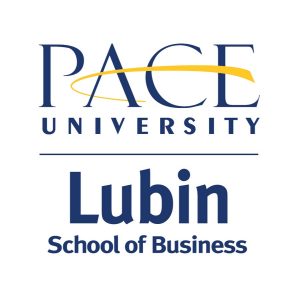
Lubin School of Business — Pace University
The Lubin School of Business counts Hearst Magazines president Michael Clinton ’83, HBO Chairman and CEO William C. Nelson ’75, and former Chairman and CEO Ivan G. Seidenberg ’81 among its notable alumni. With tuition for Lubin’s two-year full-time MBA priced at $71,340, the program qualifies one of the mid-range options on our list. MBAs graduate with an average salary-to-debt ratio of 68 percent culled from average debt of $44,076, according to U.S. News & World Report, and an average base salary of $64,425.
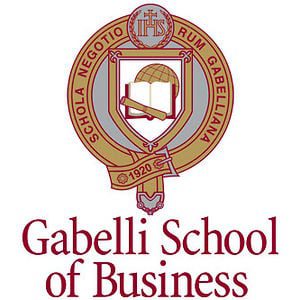
Gabelli School of Business — Fordham University
Notable Gabelli School of Business notable alumni include UnitedHealth Group CEO Stephen J. Hemsley, ’74; former JP Morgan CEO Maria Elena Lagomasino ’77; Countrywide Financial Corp Co-Funder, Chairman, and CEO Angelo R. Mozilo ’60; and Empresas Polar CEO Lorenzo Mendoza. At $87,807 for its two-year full-time MBA, Gabelli’s tuition is among the priciest on our list but the handsome 53 percent salary-to-debt ratio makes up for it. MBAs graduate with an average debt of $51,870 and go on to earn an average base salary of $97,404.

Tobin School of Business — St. John’s University
The Tobin School of Business at St. John’s University is one of the most affordable MBA programs on our list, with tuition priced at $43,740 for its two-year full-time MBA. Tobin MBAs graduate with an average debt of $28,291, which when set against their $59,276 average base salary, yielding a 48 percent salary-to-debt ratio.
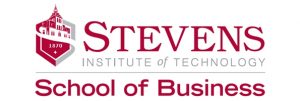
Stevens Institute of Technology School of Business
Recent noteworthy employers of the Stevens Institute of Technology School of Business MBAs include ExxonMobil, Goldman Sachs, Johnson & Johnson, JPMorgan Chase, L’Oreal, Lockheed Martin, Microsoft, Tishman Realty & Construction Co., Turner Construction, UBS Financial, and Verizon. Although tuition is priced at a competitive $68,988 for its two-year full-time MBA, Stevens actually has the highest salary-to-debt ratio of any school on our list, at 72%. Stevens MBAs graduate with an average debt of $48,244, according to CNN Money, and go on to earn an average base salary of $67,100.
